Add Connection
Oracle Marketing Cloud - Eloqua SFTP Importer App Feature
Add SFTP Connection
To add a new SFTP connection, click the + Add SFTP button. Give your import a name.

Next, provide your SFTP credentials (username and password), SFTP server url/endpoint, port (default is 22), file path, file name, and delimiter type (comma, pipe or tab). Please note, you can use an explicit filename (e.g., myfile.csv) or a wildcard (e.g., contacts*) for a .CSV file type. Click the Test Connection button to confirm access. If unsuccessful, double check your credentials and firewall settings.
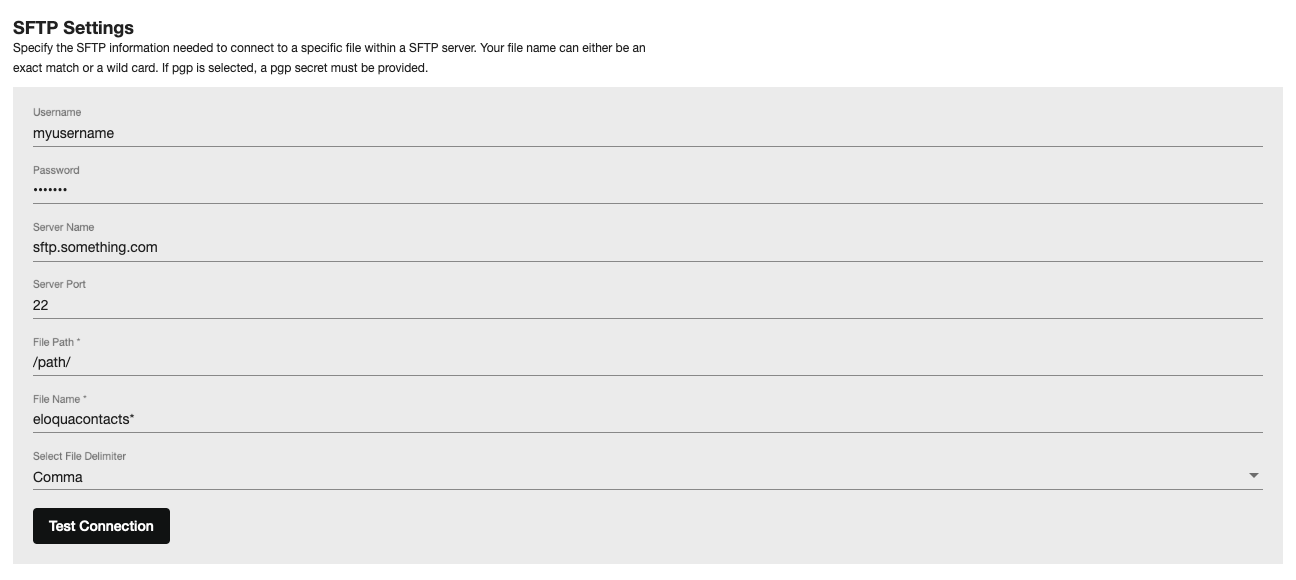
Optionally, the SFTP Importer app lets you import PGP encrypted files. To decrypt an encrypted file, enable Use PGP. When enabled, you will need to paste your PGP Private Key and, if created, your PGP Passphrase.

Click Continue.
Field Mapping
Next, to import data from the file, you'll need to map your file field headers to your desired Eloqua fields. To get started, specify a file on your SFTP location and click on the Get Fields button to get the header fields of your file. Then, specify the Eloqua object (Contact, Account, or Custom Object) you would like to import data into. Please note that you cannot change this setting once you have specified the Eloqua object and save your connection settings.
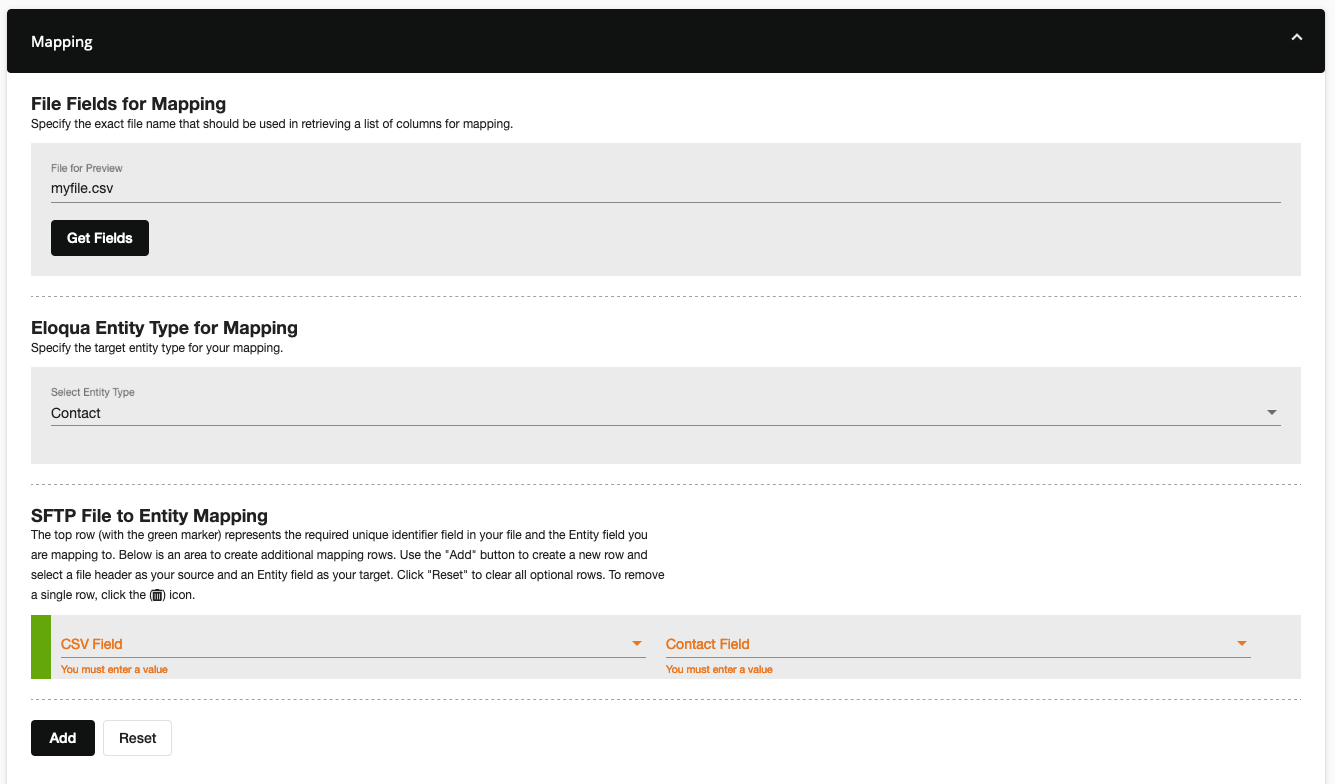
Next, map the desired fields from the SFTP file to the appropriate Eloqua field. At a minimum, you must map the unique identifier (the green row). Click the Add button to add additional mappings.
Please note, you can map the same source (CSV) field to one or more Eloqua fields but once an Eloqua field has been mapped it will no longer be available for additional mapping. To remove a mapping, click on the .
Optionally, for Custom Object imports you can enable mapping of a Custom Object record to either an Eloqua Contact or Account. When enabled, you will need to specify the Object field that should be used for mapping, the Eloqua entity (Contact or Account), and the respective entity field. Toggle Case Sensitive if desired.
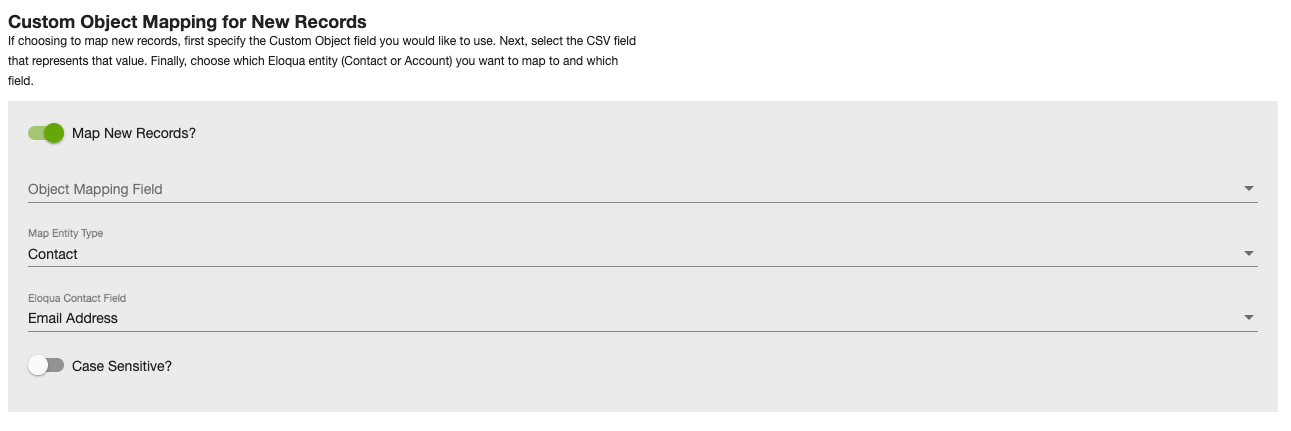
Data Priority
Optionally, specify the Eloqua Data Priority to use with your Eloqua Bulk Import.

Synch Actions
Optionally, for Contact and Account imports, you can specify one or more synch actions including:
-
Contact
- Add to Contact List (Shared List)
- Remove from Contact List (Shared List)
- Subscribe To Email Group
- Unsubscribe from Email Group
- Global Subscribe
- Global Unsubscribe
-
Account
- Add to Account List
- Remove from Account List

Schedule Settings
You can run your import on demand by clicking the Run Now button or you can set up a scheduled import. For scheduled imports, set the import frequency, days of the week, start time/end time, and offset.
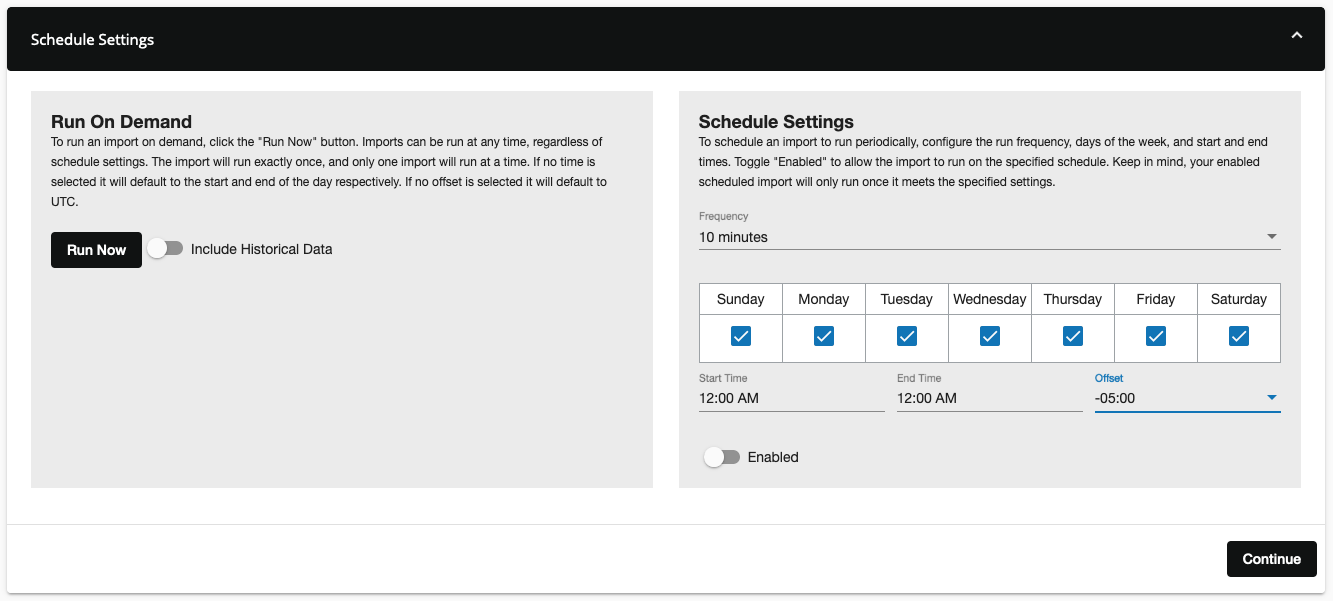
Allowed frequencies include:
- Every 5 minutes
- Every 10 minutes
- Every 20 minutes
- Every 1 hour
- Every 2 hours
- Every 4 hours
- Every 6 hours
- Every 8 hours
- Every 12 hours
- Every 1 day
- Every 1 week
- Every 1 month
Click the Enable toggle to enable your scheduled import.
Notification Settings
Optionally, you can specify one or more email addresses (comma separated) to receive a notification on import success or import failure. Use the toggle to enable or disable notifications. You can add one or more email addresses, separated by a comma, to receive notifications.
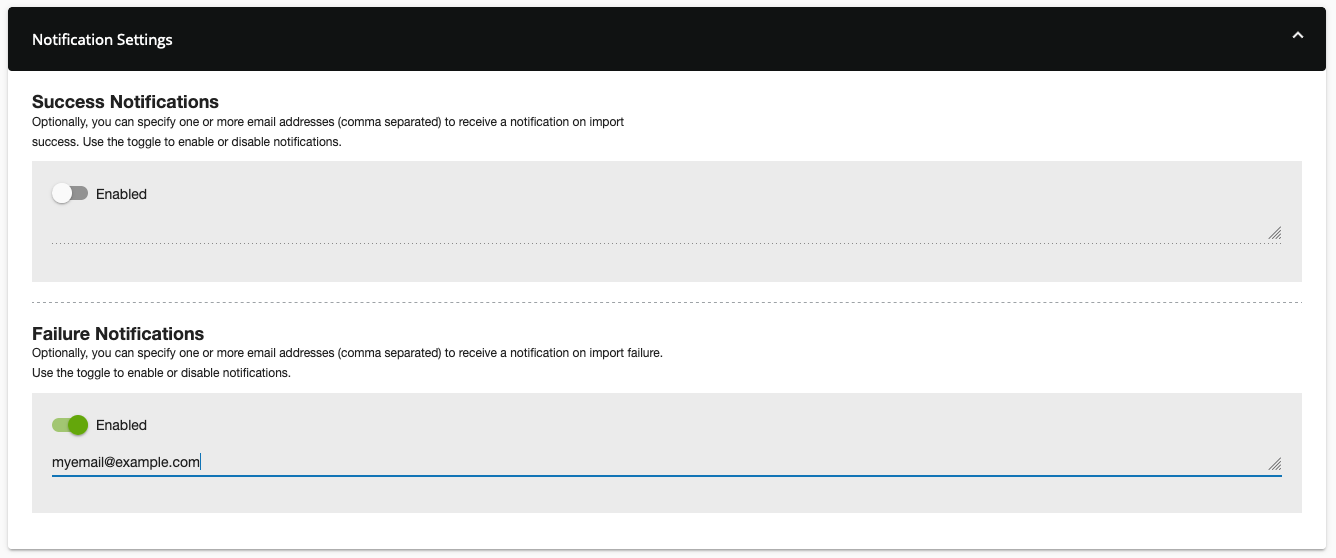
Click Done to save your import settings.
Updated about 1 year ago
